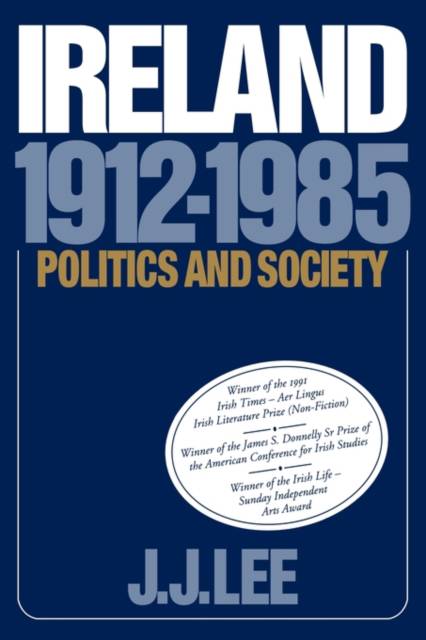
- Afhalen na 1 uur in een winkel met voorraad
- Gratis thuislevering in België vanaf € 30
- Ruim aanbod met 7 miljoen producten
- Afhalen na 1 uur in een winkel met voorraad
- Gratis thuislevering in België vanaf € 30
- Ruim aanbod met 7 miljoen producten
Zoeken
Omschrijving
This is the first major study on this scale of Irish performance, North and South, in the twentieth century. Although stressing the primacy of politics in Irish public affairs, it argues that Irish politics must be understood in the broad context of economic, social, administrative, cultural, and intellectual history. The book fully explores the relationship between rhetoric and reality in the Irish mind and views political behavior largely as a product of collective psychology. "The Irish experience" is placed firmly in a comparative context. The book seeks to assess the relative importance of British influence and of indigenous impulses in shaping an independent Ireland, and to identify the relationship between personality and process in determining Irish history. Particularly close attention is paid to individuals such as Eamon de Valera, Michael Collins, W.T. Cosgrove, Sir James Craig, J.J. McElligott, Sean Lemass, Terence O'Neill, and Ian Paisley, and to the limits within which even the most powerful personalities were forced to operate.
Specificaties
Betrokkenen
- Auteur(s):
- Uitgeverij:
Inhoud
- Aantal bladzijden:
- 778
- Taal:
- Engels
Eigenschappen
- Productcode (EAN):
- 9780521377416
- Verschijningsdatum:
- 18/01/1990
- Uitvoering:
- Paperback
- Formaat:
- Trade paperback (VS)
- Afmetingen:
- 152 mm x 228 mm
- Gewicht:
- 907 g

Alleen bij Standaard Boekhandel
+ 175 punten op je klantenkaart van Standaard Boekhandel
Beoordelingen
We publiceren alleen reviews die voldoen aan de voorwaarden voor reviews. Bekijk onze voorwaarden voor reviews.







